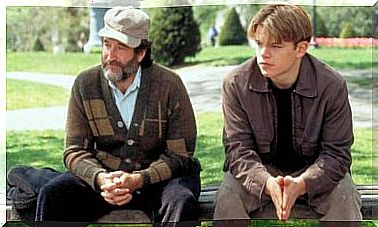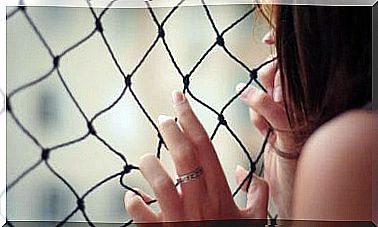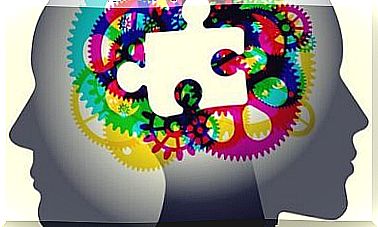Emotional Tourism, Navigating Without A Compass In Love

When we are going through a very painful break-up or when we have had several unsuccessful relationships, we can feel lost. Like a boat drifting in the middle of the ocean, without the slightest control. For many people, the alternative to this situation is emotional tourism. A flight forward, without remedy, without healing.
Separating from the person with whom we have gone through several stages of our life involves suffering from physical but also emotional distance. The latter is precisely the most difficult to cure because we are used to resisting it.

Emotional tourism, an incomplete grieving process
After a break-up, many people go through a long grieving process during which, little by little, they come into contact with reality: the loss of a companion. At first, they refuse to accept it. Later, desperation visits them and finally they may experience symptoms of depression and anxiety.
The next phase of the process is acceptance. The return to the real world and the acceptance that hopes were mere utopias. Now is the time to rebuild and meet new people. Finally, if all goes well, a feeling of accomplishment is felt. One is able to analyze the previous relationship objectively and learn from past mistakes.
Emotional tourism arises in those people who do not complete this grieving process, either out of fear or because it is a defense mechanism. They get stuck at one of the stages and refuse any opportunity to have positive relationships in the future. They choose to become numb and maintain interpersonal connections with others as a simple tourist pastime.
Navigators without a compass
Emotional tourists jump from person to person, from place to place, from port to port. Without fixed direction. They just let themselves be carried away. They explore new sensations and define themselves as authentic adventurers. They seek pleasure, joy and euphoria. They don’t feel the need to get involved and don’t take responsibility for the people they meet.
However, these people should not be confused with those who choose not to be in a relationship because they prefer to be single. Emotional tourism is not the result of choosing to be single, but behavior that derives from emotional self-sabotage.

The refusal of a lasting bond
Emotional tourism subconsciously plays against the desires of the person. So even though these browsers want to start a stable relationship with a new person, they cannot do so because they have not yet faced the pain of their previous breakup.
They are anchored in the past even if they claim to the contrary. They therefore prefer to go from island to island, without stopping to reflect on a shore. This way, if they find the “paradise” they seek, they do not allow love to come back and give orders to their hearts. They let that person slip away and continue to roam the world.
A door that stays open
If you meet them, they will surely make you follow their philosophy. “It is better to regret what you do than to feel remorse for not having done it”. “Get started. Otherwise, you will never know what could have happened ”.
Emotional tourists prefer a “see you soon” rather than a “goodbye”. They let think that they will be able to return at any moment. Or that they never will.
Histrionic intermittence
It means loving at times. Today if and tomorrow not. The emotional tourist comes and goes. His daily life is ruled by instability, frenzy and selfishness. Those they meet on the other side of the port end up expecting nothing more from them.
This behavior can be very dangerous at the psychological level. It is a way of living everyday life that can be addictive and generate dependency. Especially if emotional tourism is assumed as a lifestyle. Being constantly on a tightrope generates insecurity that can be pathological.
Exacerbated extroversion
Emotional tourists enjoy making new friends and maintaining sporadic relationships as much as letting them go or breaking them. It despairs and motivates them at the same time. Their relationships are rarely productive because they prefer to enjoy the trip. Their life is based on the here and now.
If it’s temporary, it serves as an apprenticeship
Sometimes it is good to get out of the established order and discover the world. Many people, after coming out of a particularly painful and long love situation, decide to move on to other horizons.
If they start their path as emotional tourists and are aware that they are doing so to let go of their pain, they will be able to navigate, get lost and find each other without harming those around them. This journey, especially for the most emotional people, serves as a learning experience because it turns into a very enriching experience.

How to help the emotional tourist
Usually, these people are unaware of the emotional wear and tear they are suffering from. If they decide to listen to you, they should be advised to go see a psychologist or psychotherapist. Only a relationship specialist can help them make the adjustments necessary to normalize their lives.
In this case, it is not a question of changing beliefs or values but of helping to find meaning in life and to break the shell built as a protective mechanism.










